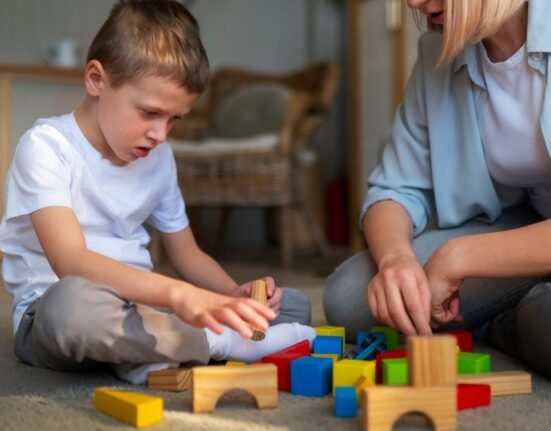Meet the Glass Child, a sibling of a child with special needs, often hidden in the shadow of their brother’s or sister’s requirements. With their lives shaped by caregiving, they develop remarkable resilience and empathy, but at what cost? This article explores the complex world of Glass Children, shedding light on their unseen struggles.
Who is a Glass Child?
A glass child is not a mental condition; it is a term used to describe the sibling of a disabled person, who can be either mentally or physically disabled. Glass children do not have a normal childhood like others. They carry suppressed pain throughout their lives. Although glass children are fragile, they try to be perfect and strong due to societal and parental pressure. They suppress their pain and act like perfect children. We will explore some stories to better understand their situation.
Understanding Glass Child
To Understand the lives of Glass children better, we must first embrace ourselves to step into their shoes and follow along their journeys. Below are some case studies and examples of Glass children.
Alicia Gave a TEDx Talk in 2011, “Recognizing Glass Children”. Alicia Meneses Maples has two younger brothers who were born with disabilities. Mario was diagnosed with autism and David was diagnosed with a rare genetic disorder called severe combined immunodeficiency.
Her mom stayed in the hospital with David and her dad cared for Mario. No one was there to pay much attention towards her. As a result, She started to often feel invisible. In most families, the members usually don’t have time to take care of their other kids who don’t need much medical and personal attention because they are busy taking care of disabled children. Ultimately, The “glass child” often feels left out and needs comfort, care, and validation from parents. This can lead to emotional neglect, low self-esteem, and anxiety. Parents should recognize these needs and provide individual attention and support. With patience and understanding, “glass children” can thrive and build resilience.
Read More: 10 Helpful ways to motivate your Child
Parents often devote most of their time and resources to their child with special needs, leaving limited time and energy to devote to their healthy children, not because they think the healthy children don’t need care and attention, but because the demands of caring for a child with a disability can be all-consuming and overwhelming.
Healthy children seek attention and validation from their parents. It’s like they need to prove themselves every time. They can understand what their parents and siblings are going through so they behave like perfect kids. They suppress their emotions and act like everything is fine.
Her brother does things that make her embrace every time whenever they go out. When they were young, he often broke and hit her toys. When he was out of control he used to damage walls by hitting on them. She was a caretaker for her siblings. “People who have disabled siblings feel like someone robbed their childhood’’ said Alicia.
Problems Faced by a Glass Child
Higher stress level: They are stressed because parents and society expect them to be perfect every time. They might impose double expectations because disabled children can’t fulfil their dreams.
The invisible burden: they lose their childhood while taking care of their siblings by managing their schedules and helping them with daily tasks.
As the healthy, able-bodied siblings of people with additional or complex needs, many participants reported a disparity of attention received between themselves and their brother or sister. As we can see below, this often came from immediate or extended family, or other adults known to them, even during demanding times such as during the death of a family member. They feel left out and jealous, overlooked and unimportant too.
Like they’re in the background, not noticed or valued as they should. This affects their self-esteem, making them feel uncertain and low. Straining family relationships, as their emotions and needs go unspoken.
P3: Nobody really asked me anything. Like when my mum actually died, everyone just kept asking me how my sister was coping with my mum dying, nobody actually asked me how I was, they asked me how my dad was or how my sister was, but nobody actually asked me how I was. Imogen Hanvey, Aida Malovic, Evangelos Ntontis 24 January 2022.
Fear of failure: Out of fear they can’t meet expectations, they tend to fail, not because they’re not capable, but because the pressure to be perfect is overwhelming.”
Adapting of change: Missing out on social events and tours. The healthy child needs to adjust to everything because “the healthy child” is expected to be a perfect kid.
Impact on mental health: experiencing depression anxiety, sleeplessness or other mental health concerns due to emotional burden.
Challenges faced by Parents
- Financial burdens: They spend most of their income on medical expenses and costly specialized equipment
- Limited socialization: Limited social interactions and support due to caregiving .
- Balancing needs: When they have a disabled child in the family, managing the needs of a disabled child and other family members is difficult.
Coping strategies
- Seeking support: they can be part of a support group or take the help of a counselor.
- Self-care: they can start journal writing, do some physical activity and meditation which will help them to release the stress. They can do some skin and body care routine which helps to relax their body and mind.
- Set boundaries: they should set clear boundaries and learn to say no to things that drain their energy. Prioritize your own needs and don’t be afraid to assert yourself. Remember, saying no to others means saying yes to yourself
- Celebrate your strengths: Acknowledge Yourself and celebrate your small victories.
- Support group: Support Groups will help the glass child to be in a safe space, where they can share their feelings without judgment. They can explore and grow. It will help them reduce the guilt and shame and make them feel they are not alone in the journey. They will have emotional support from the group.
P11: I didn’t think of me needing that support. But looking back on it, I think I did need that support. […] when you’re a bit older and you can look back and think “yeah actually, I probably was struggling at that time”. I think if somebody had said to me “are you okay, are you struggling?” I probably would have said, “yeah, I’m fine”. Actually, I probably wouldn’t have realized unless somebody had really come up to me. Having said that, I think as I got a bit older, and there had been a support group there and it had been offered to me, I think I would have taken it. […] I probably didn’t have the words or the skills at that time to express how I was feeling. Imogen Hanvey, Aida Malovic, Evangelos Ntontis 24 January 2022.
A support group for Glass Children should have a unique feature that allows members to connect with others who have siblings with the same specific disease or condition, fostering a deeper understanding and sense of community among those with similar experiences and mindsets.
P14: I think having people that understand. And because I haven’t really had anyone that understood, that’s been tricky. Finding “Sibs” [UK] and being able to talk to another sibling and being like “Wow, there’s somebody else in the world who’s been through something similar!” is really helpful, and to know that some of those feelings you have and those family dynamics are stemming from what happened to you. It doesn’t necessarily mean that you can move past it, but it just makes you understand it a bit more, and go “it’s OK, this is normal for someone in my situation”. Imogen Hanvey, Aida Malovic, Evangelos Ntontis 24 January 2022.
Conclusion
In conclusion, glass children face unique challenges, including higher stress levels, emotional burdens, and impacts on their mental health. Support groups can provide a safe space for them to share their feelings. Connect with others who understand their experiences, and find emotional support. By acknowledging the struggles of glass children, we can work towards creating a more supportive environment for them to grow and thrive. Parents should aim to create a balanced and nurturing environment for healthy children and disabled children so that they both can get equal love and affection. They should avoid unfair expectations of healthy children. They should acknowledge the feeling of a healthy child.
References +
- SSM Health. (2023, October). Understanding Glass Child Syndrome. SSM Health Matters https://www.ssmhealth.com/newsroom/blogs/ssm-health-matters/october-2023/understanding-glass-child-syndrome.
- CNN Health. (2024, April 23). The ‘glass children’ who grow up in the shadow of a sibling’s illness. CNN. https://www.cnn.com/2024/04/23/health/glass-children-invisible-sibling-wellness/index.html
- Special Kids. (n.d.). Growing up a Glass Child. Special Kids. https://specialkids.co.za/home/siblings/item/700-growing-up-a-glass-child.html
- Hanvey, I., Malovic, A., & Ntontis, E. (2022). The experiences of adult siblings of people with autism and intellectual disability. Clinical Child Psychology and Psychiatry, 27(2), 247-259. https://onlinelibrary.wiley.com/doi/full/10.1002/casp.2602













Leave feedback about this